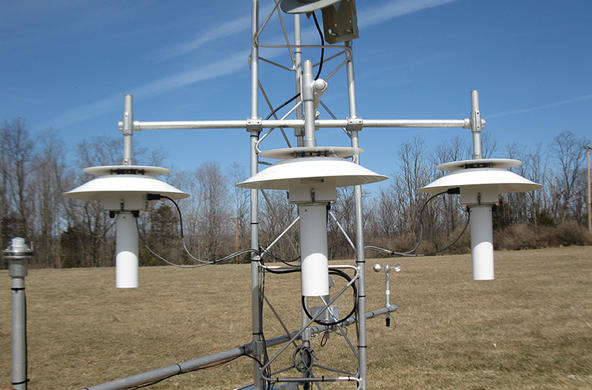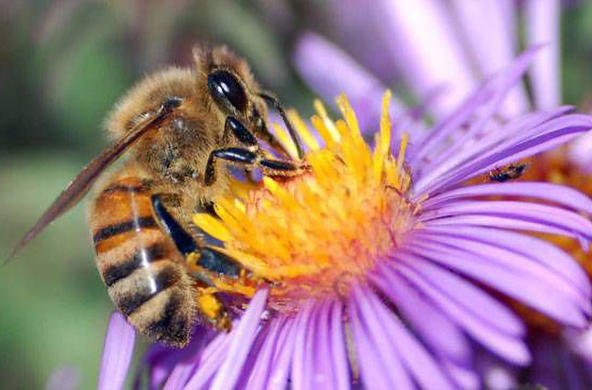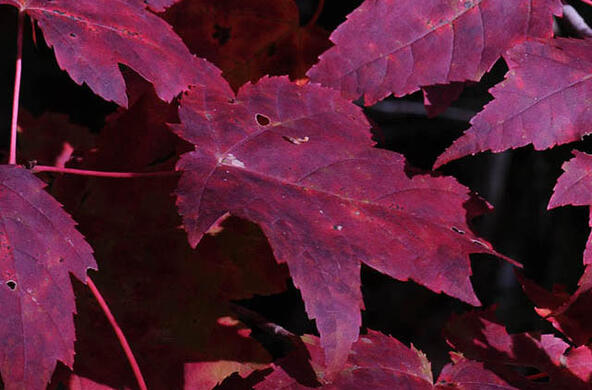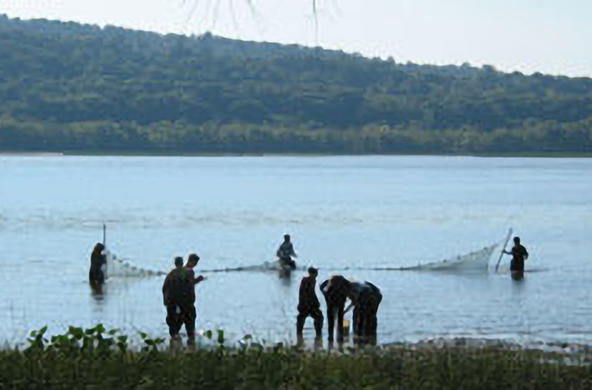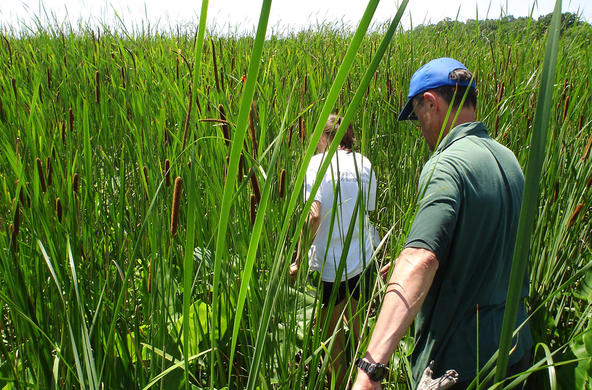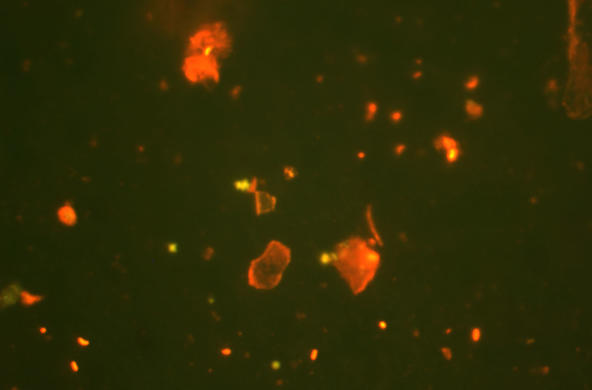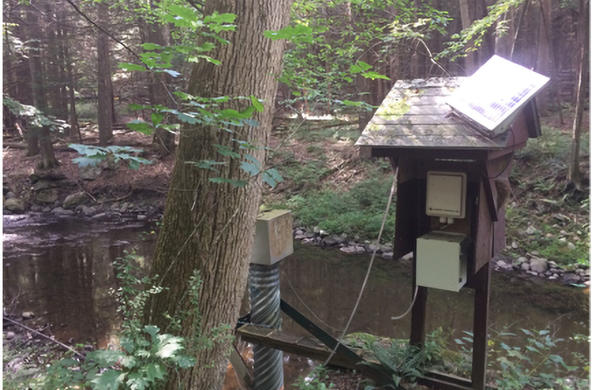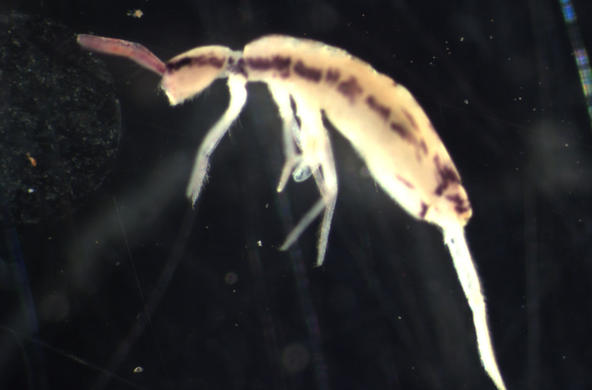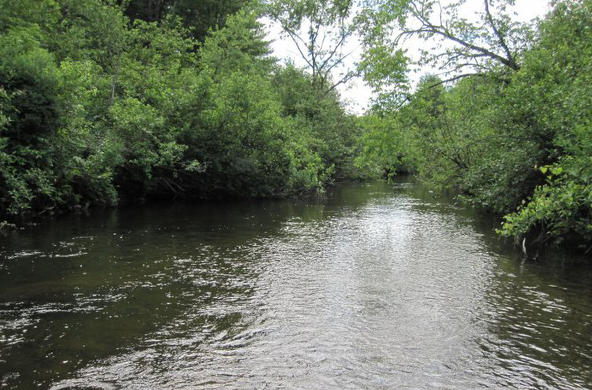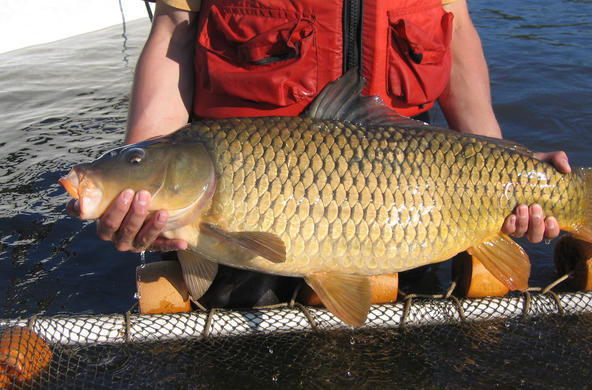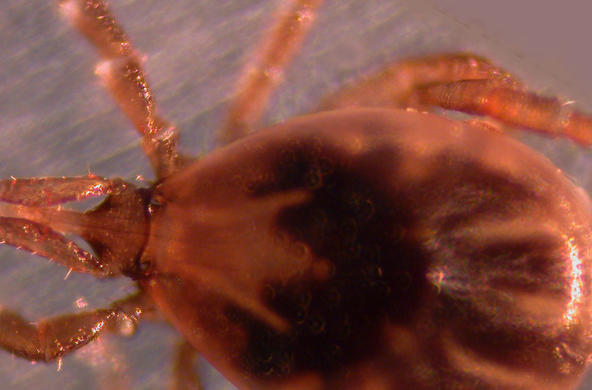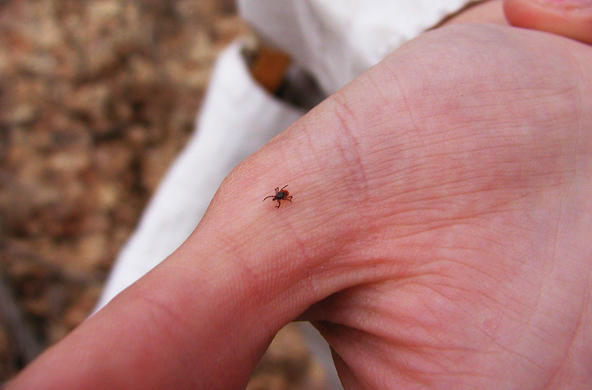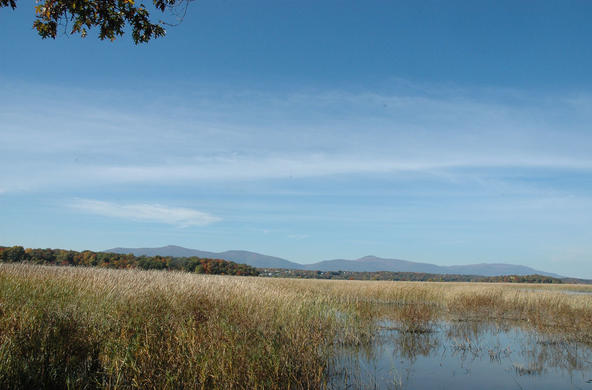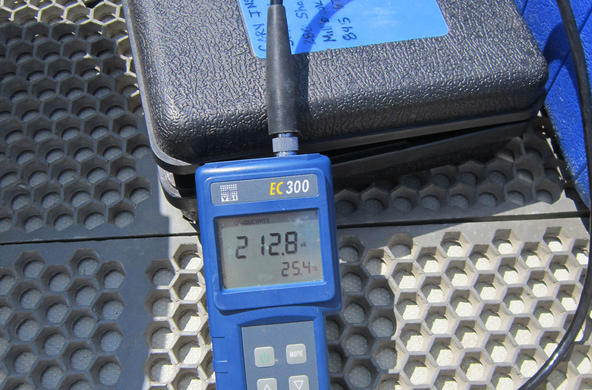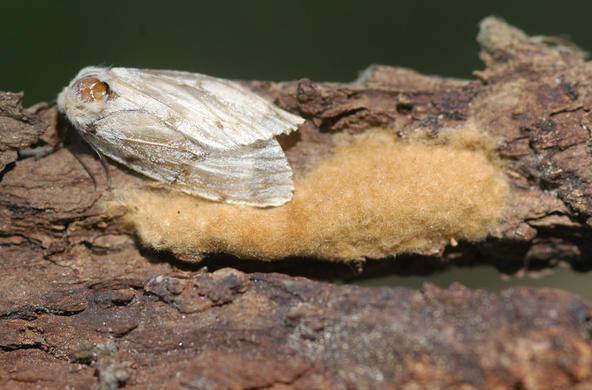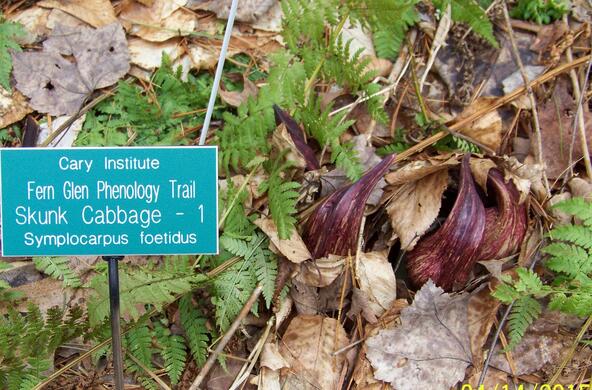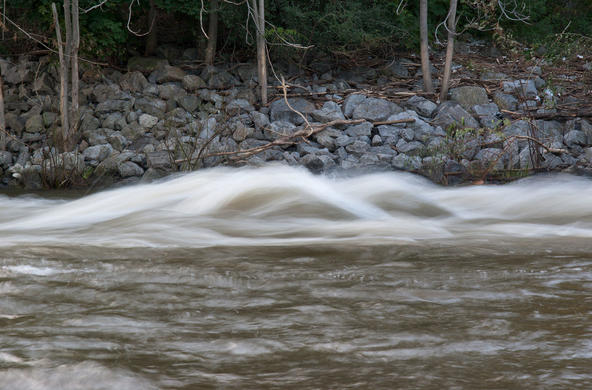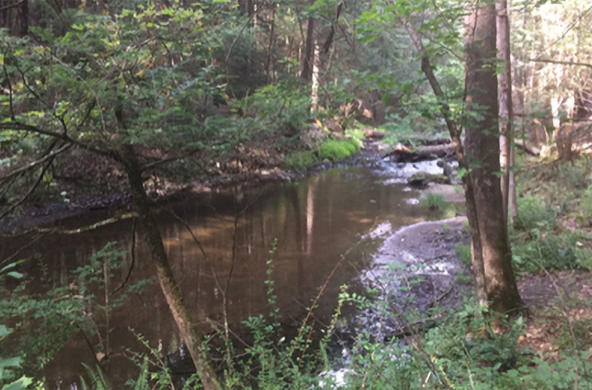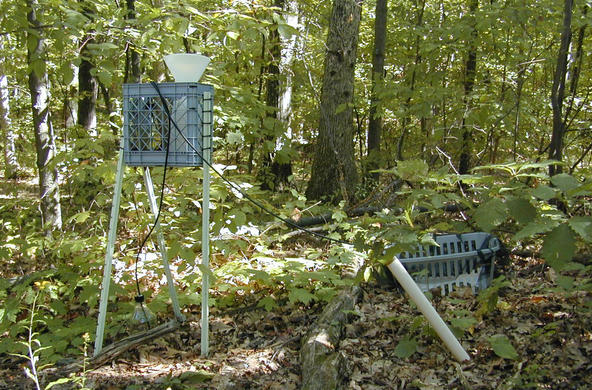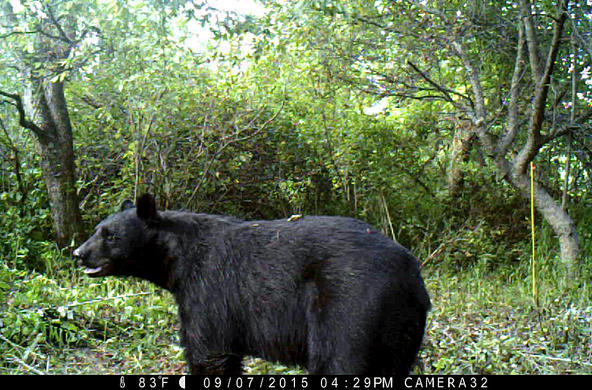Guiding Questions
Do different insect species occur along the edge versus the interior of a forest? Does the total number of insect species differ in different parts of a forest stand?Overview
Compare how the insect species vary from the edge to the interior of a forest by beat sampling tree saplings along a transect.
Materials
- 1 white sheet
- a rigid object to strike or beat saplings
- 1 meter stick
- insect identification books and keys
- materials for laying transect
- 1 measuring tape at least 5m long
- 1 12m long transect rope or string with marks at 1m, 6m, and 11m
- flexible measuring tape for measuring tree circumference (optional)
- tree and shrub identification books and keys
- stakes for anchoring transect
- data sheets and clipboards
Procedure
- Locating and running transects
- Collecting data at each sampling point
* For each sapling tree you sample during this study, collect insect community data.
* Lay the sheet down on the ground directly beneath the sapling. - Firmly beat the sapling for a predetermined amount of time or with a predetermined number of strikes.
- Immediately examine the insects that fall onto the sheet. Your goal is to "name" as many species as possible, so that you can get an idea about the total number of species present (i.e., species richness or diversity) and what the major species are (i.e., the species composition).
- Record your results on the data sheet.
- If possible, repeat this procedure for each sapling tree at each of the three sampling points along the transect.



